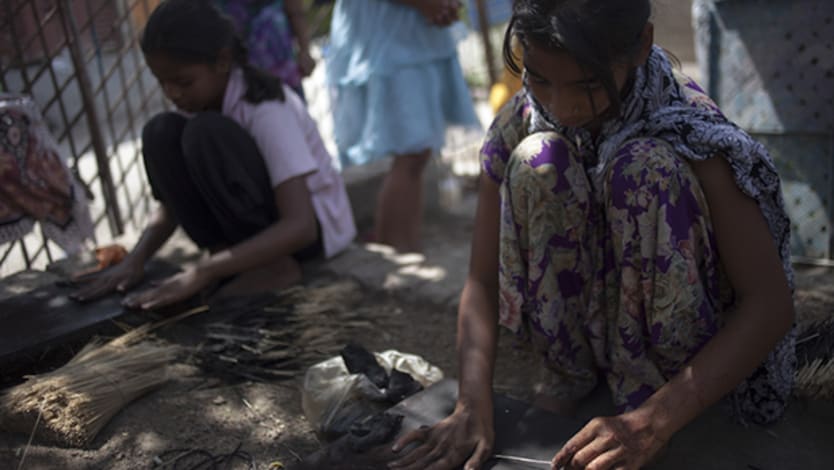
WASHINGTON — Many policymakers are ill-informed about the most pressing issues affecting gender equality in their countries, including the number of women in the labor force and how many are dying in childbirth, according to a new report published by a coalition of NGOs and private sector companies working to fill the gender data gap.
The report, published on Wednesday by Equal Measures 2030 — a civil society and private sector partnership that collects data, analysis, and evidence to drive gender equality in developing countries — assesses the extent to which policymakers are informed about, and have access to, data linked to the Sustainable Development Goals on gender.
Released during the United Nations General Assembly, it draws on interviews with more than 100 policymakers in five countries — Colombia, India, Indonesia, Kenya, and Senegal — in which the subjects were asked to estimate figures on key gender issues in their respective countries.
Most admitted they did not know the relevant figures. Asked about the proportion of child brides, for example, more than half said they didn’t feel confident enough to even guess. Those who were willing to make estimates were often wide of the mark, with only 25 percent getting within 20 percent of the right figure for their country. Only 6 percent of policymakers were able to come within 20 percent of the official maternal mortality figure.
“Policymakers are flying blind when it comes to gender equality. Two-thirds of policymakers believe progress has been made, but they aren’t confident in their knowledge of the facts and figures,” said Alison Holder, director of Equal Measures 2030, explaining that “we need the full picture if we’re to have any chance of meeting the ambitious promises set out in the SDGs.”
The findings are the result of both a lack of awareness among policymakers, and a lack of access to reliable, timely, and disaggregated data on gender equality. While the majority of those interviewed said they knew where to access data on key issues should they need it, fewer than half rated government data sources on gender as “very useful.” At the same time, less than half said they used international data relating to gender equality, such as from the United Nations or from research institutions, in their work.
Colombian policymakers’ estimates of the percentage of girls married before the age of 18 ranged from 4 percent to 80 percent, with the actual figure being 23 percent. In Kenya, politicians who were asked what percentage of parliamentary seats are held by women guessed between 6 percent and 90 percent; the figure is 21 percent. Meanwhile in India, interviewees guessed the percentage of women in the labor force at between 20 percent and 70 percent, though the official figure is 27 percent.
Equal Measures 2030 is aiming to close the data gap in order to improve policymaking around gender issues.
The survey also revealed that perceptions of equality differed significantly between male and female policymakers, with nearly 80 percent of men saying their country is more equal now than five years ago, while only 55 percent of women agreed.
Similarly, more women than men said they felt too little attention is paid to gender in policymaking. More than 20 percent of men said they felt too much attention is paid to it.
Data alone is not enough
The Equal Measures partnership was launched in response to a growing realization that women and girls are routinely left out of global and national data collected on vital issues such as health, education, and political participation. Believing that without this data it will be impossible to effectively influence policy, demand accountability, and track progress toward equality targets, donors and U.N. agencies have announced various initiatives to improve gender-specific data collection and tracking, as Devex reported.
Equal Measures 2030, launched earlier this year, brings together many of these efforts and will gather, analyze, and disseminate gender data, working with women and girls’ advocacy groups to reach decision-makers.
Having good data about gender issues, and getting it into the hands of the right people, will be crucial to achieving the SDGs, according to Dinah Musindarwezo, executive director of FEMNET, a member organization of the Equal Measures 2030 partnership along with PlanLAN International, ONE Campaign, Bill & Melinda Gates Foundation, Women Deliver, KPMG, International Women’s Health Coalition, and Data2X.
“Data alone is not enough. We must ensure that evidence gets into the hands of those making decisions on issues that impact the lives of girls and women,” she said, adding that African governments have reported that having limited access to gender-disaggregated data “will be a major challenge in achieving the SDGs.”
Equal Measures 2030 aims to overcome that problem by compiling, analyzing, and communicating existing data on gender issues; and exploring key gaps where collaborations on data collection could help.
“By bridging this gap and making data actionable, we’re excited that local organizations will be better equipped to fight injustice and influence policies that can maximize the potential of women and girls in their communities,” said Gayle Smith, CEO of the ONE Campaign and former head of the U.S. Agency for International Development.
What can development actors do?
Holder outlined a number of ways NGOs and others can help ensure the partnership’s data gets into the right hands. First, the data needs to be “accessible, usable, communicated in compelling ways, and linked to stories that bring the lived realities of girls and women to life,” she said.
Second, the stories need to be shared by a variety of actors and not just advocates — business leaders, the media, and the public need to take notice.
Third, grassroots girls and women’s movements need “bolstering … with capacity, resources, and skills to better use data in their influencing,” as this will increase the likelihood that policymakers will pay attention to their asks, Holder said. This is something the Equal Measures partnership is working on.
The director also offered tips on how NGOs working on gender equality can use the report’s findings to influence decisions and policies in the countries in which they operate.
“It’s essential to meet policymakers where they’re at — if policymakers struggle to grasp the scale of the challenges facing girls and women, then NGOs working in the field need to use data and evidence to make their case in a clear and compelling way,” she said.
Holder also encouraged NGOs to use the data as a “basis for dialogue” with policymakers, presenting it as something to build on while also acknowledging positive indications “such as the fact that the policymakers in our survey had high awareness of the SDGs and also were able to offer concrete suggestions about the priorities for gender equality in their countries,” she said.
“Whether NGOs working in the field agree with the assessment of policymakers of the priorities or not, [the report] provides the basis for a dialogue,” she added.
Read more international development news online, and subscribe to the Development Newswire to receive the latest from the world’s leading donors and decision-makers — emailed to you free every business day.








